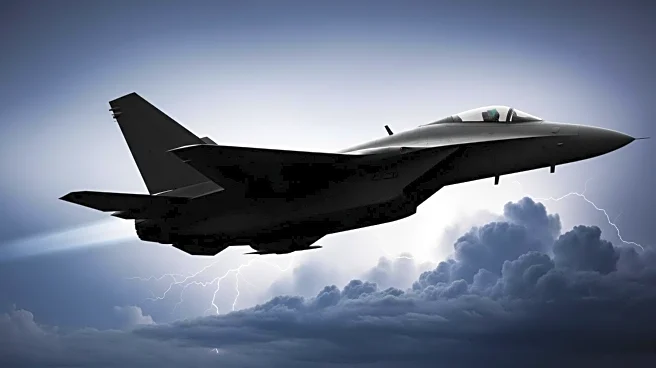What's Happening?
The Israeli Defense Ministry is reportedly considering a change in leadership for the Israel Air Force (IAF), with current chief Tomer Bar potentially being replaced. This move is driven by the need to prepare for future challenges, particularly in light of Iran's intentions to retaliate against Israel. The decision is part of a broader strategic assessment by the military and the Defense Ministry to ensure that the IAF is equipped to handle evolving threats in the region. The potential change in leadership reflects the ongoing adjustments within Israel's defense apparatus to maintain readiness and adaptability in a volatile geopolitical environment.
Why It's Important?
The potential leadership change in the Israel Air Force is significant due to the strategic role the IAF plays in national defense and regional security. With Iran's intentions to retaliate against Israel, having a capable and forward-thinking leader at the helm of the IAF is crucial. This decision could impact Israel's military preparedness and its ability to respond to threats effectively. The move underscores the importance of leadership in military strategy and the need for continuous adaptation to geopolitical shifts. It also highlights the broader implications for regional stability and the balance of power in the Middle East.
What's Next?
If a new chief is appointed, the transition will likely involve strategic planning and adjustments within the IAF to align with the new leadership's vision. The Defense Ministry and military will need to ensure a smooth transition to maintain operational readiness. Additionally, this change could prompt reactions from regional actors, particularly Iran, which may view the leadership shift as a strategic maneuver by Israel. The decision could also influence Israel's defense policies and its approach to regional security challenges.
Beyond the Headlines
The leadership change in the IAF could have deeper implications for Israel's defense strategy and its approach to international relations. It may affect Israel's alliances and partnerships, particularly with countries concerned about Iran's influence in the region. The decision also raises questions about the role of military leadership in shaping national security policies and the importance of adaptability in defense strategies.









